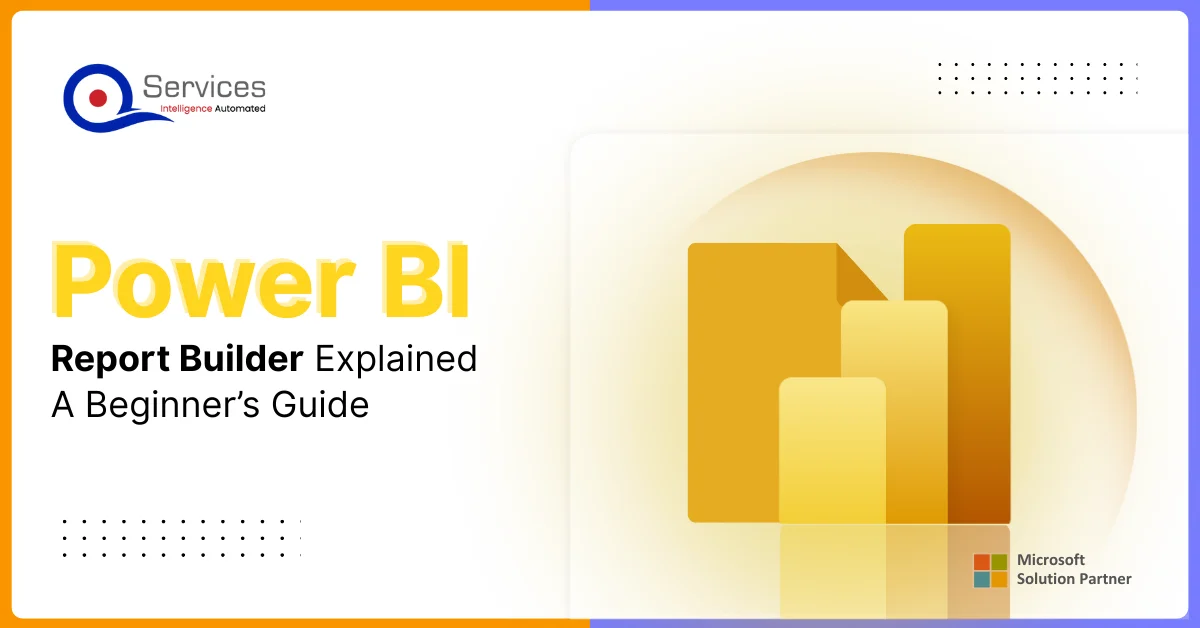
Home » Why Your Business Needs a CRM Solution in streamlining sales processes ?
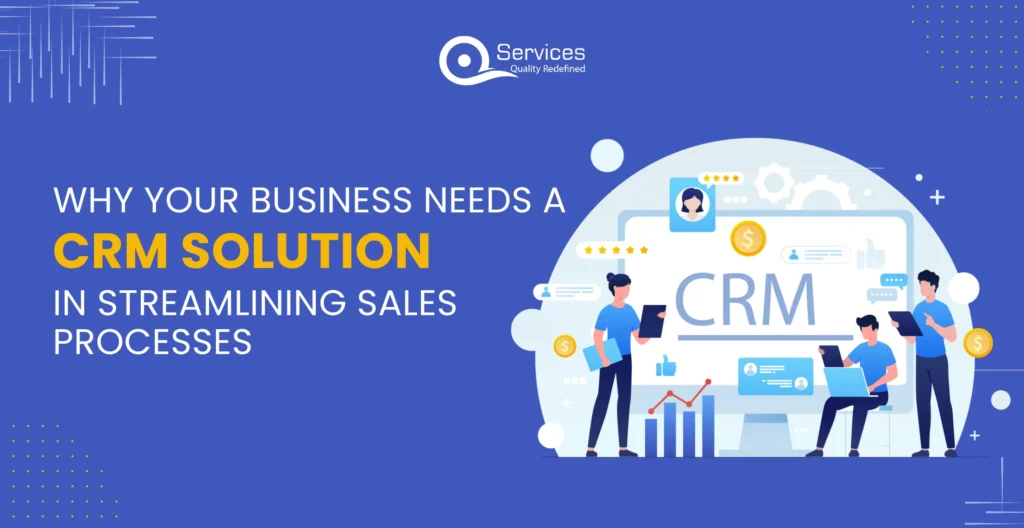
Efficient sales processes are key to addressing customer pain points and driving significant business growth. Did you know that top-performing sales teams achieve a 56% higher conversion rate from lead to opportunity? Companies with streamlined sales operations not only close deals faster and boost sales productivity but also grow revenue 15% faster than their counterparts.
Additionally, according to CSO Insights, organizations that focus on sales efficiency achieve 88% of their revenue targets, compared to 78% for those with less efficient processes. Effective sales processes lead to better customer experiences, resulting in improved customer retention rates. A 5% increase in customer retention can boost profits by 25% to 95%.
By investing in tools like CRM software for lead CRM businesses can securely manage customer data and drive increased sales opportunities. With shorter sales cycles and improved customer experiences, businesses can not only meet but exceed revenue targets while nurturing long-term loyalty and advocacy.
Whether you’re a small startup or a large enterprise, CRM, including CRM lead generation capabilities, empowers you to monitor customer interactions effectively, ensuring each touchpoint is valuable. It enables businesses to grow by putting customers at the center of everything they do. It is basically a powerful toolkit that businesses use to enhance their interactions with customers. It’s all about understanding and meeting customer needs while building long-lasting relationships. With CRM software, businesses can efficiently organize and analyze customer data, leading to personalized communication, smoother processes, and better overall customer experiences.
Get free Consultation and let us know your project idea to turn into an amazing digital product.
CRM software tailored for lead and pipeline management designed to streamline and optimize various aspects of customer relationship management, including lead management, pipeline management and much more. From comprehensive contact and lead management capabilities to seamless opportunity tracking, it has many functionalities. Let’s explore these essential CRM functionalities in greater detail.
A sophisticated CRM system serves as the ultimate organizer for all customer-related information, ranging from detailed profiles to past communication records, lead scores, and lead generation data. This centralized platform simplifies contact segmentation and empowers targeted marketing initiatives, ensuring personalized sales strategies tailored to individual client needs.
Efficient CRM functionality allows seamless tracking of deal progress, ensuring no potential sales slip through the cracks. Visual representations of sales pipelines offer clear insights into the status of each opportunity, enabling teams to focus efforts on advancing deals strategically.
CRM platforms excel in keeping sales teams on track by facilitating efficient task scheduling. From setting follow-up reminders to organizing crucial meetings, these systems ensure all essential activities are managed effectively, maximizing productivity and preventing oversights.
CRM software streamlines routine activities like sending standard emails and assigning leads, liberating sales professionals to focus on nurturing relationships and closing deals. This automation boosts productivity, empowering teams to invest their time in high-impact tasks.
CRMs provide invaluable insights into sales performance and market dynamics with robust reporting and analytics capabilities. By analyzing CRM data, businesses obtain actionable intelligence to refine strategies, respond to market changes, and continuously enhance sales efforts.
CRM systems enhance communication and teamwork within sales teams by nurturing a seamless collaborative environment. With integrated collaboration tools and shared information, the CRM platform ensures alignment and concerted efforts towards achieving common sales objectives.
Lead generation CRM software, a crucial aspect of the CRM sales pipeline, involves captivating interest in a product or service and subsequently transforming it into a sale. This process includes pinpointing potential customers poised to become paying clients. A successful lead generation strategy ensures a continuous influx of opportunities into your sales pipeline, thereby sustaining a steady flow of prospects for your sales team.
A robust lead generation strategy is pivotal for maintaining a healthy sales pipeline. Without a consistent influx of leads, achieving sales targets and revenue goals would pose significant challenges for your sales team.
By placing emphasis on lead quality, you allure prospects who possess genuine interest in your offerings. These qualified leads are more inclined to transition into paying customers, thus contributing to revenue growth.
Effective lead generation ensures that your sales team directs their efforts towards prospects with the greatest likelihood of conversion. By prioritizing leads with high potential, you optimize resource allocation, conserving time and effort while maximizing the impact of your sales initiatives.
Efficient lead capture is essential for sales success. Let’s explore how CRM systems streamline this process:
A CRM system acts as a centralized hub for all contacts and leads, storing detailed profiles and communication history. This organized repository simplifies lead capture from diverse sources.
CRM enables you to segment leads based on demographics, behavior, or engagement, facilitating targeted marketing and personalized communication.
CRM tools assess lead quality and assign scores, accordingly, prioritizing high-scoring leads for prompt follow-up and engagement.
CRM automates repetitive tasks such as lead assignment and follow-ups, empowering sales teams to invest their time in relationship-building activities.
Customize lead scoring rules in your CRM based on factors like engagement, demographics, and interactions. This allows you to prioritize leads with higher scores, ensuring focused attention on those most likely to convert.
Use your CRM to monitor interactions such as website visits, email opens, and social media engagement. This helps identify warm leads ready for personalized outreach, guiding your sales team’s efforts effectively.
Your CRM records all touchpoints with leads, providing valuable historical data. This insight informs your sales team’s approach, ensuring tailored communication for each prospect.
Leverage CRM reminders to prompt sales reps for follow-ups and timely communication with leads. This proactive approach enhances engagement and boosts conversion rates.
A sales pipeline acts as a guide, leading potential customers from their first interaction with your business to making a purchase. It visually represents the stages a lead goes through, providing valuable insights for sales teams to manage opportunities effectively. Let’s explore the key stages:
This initial stage occurs when leads first discover your business, often through marketing efforts or referrals. They express interest in your products or services and seek more information.
After initial interest, it’s essential to assess whether leads meet your target customer criteria. This involves evaluating factors such as their specific needs, budget constraints, and compatibility with your offerings.
With qualified leads identified, the next step is to engage with them to gain deeper insights into their requirements and challenges. This may involve conducting sales calls, meetings, or product demonstrations to understand their needs better.
Equipped with the knowledge acquired from the interaction, sales representatives create customized offers or solutions that target the specific requirements and pain areas of the leads. This phase’s focus is to show how your products add value and successfully satisfy the lead’s needs.
As leads express interest in moving forward, negotiations come into play to address any concerns or objections. This phase centers on reaching a mutual agreement on terms and conditions to advance towards finalizing the deal.
Once consensus is reached, the deal is successfully sealed, signifying the culmination of the sales process. This step involves formalizing the agreement, obtaining necessary approvals, and completing any required paperwork or transactions.
However, the journey doesn’t conclude with the sale. It’s vital to maintain and nurture relationships with customers post-purchase to ensure satisfaction, encourage repeat business, and cultivate long-term loyalty. This stage entails providing ongoing support, addressing concerns, and exploring opportunities for continued engagement.

Dynamics 365 Sales is a comprehensive customer relationship management (CRM) software solution designed to streamline lead and pipeline management. Here are its key features:
Seamlessly integrates with Microsoft tools such as Office 365 and Teams, providing a unified environment for sales teams to collaborate efficiently.
Offers a clear visual representation of your sales pipeline. You can track leads, opportunities, and deals at various stages, making it easier to prioritize and manage your sales efforts.
Dynamics 365 Sales includes lead scoring capabilities. By assigning scores based on lead quality and engagement, you can focus on high-potential leads and allocate resources effectively.
Repetitive tasks, such as lead assignment, follow-ups, and reminders, are automated. This ensures consistency and frees up your sales team’s time.
Utilizing artificial intelligence, Dynamics 365 Sales provides actionable insights. Predictive analytics helps you make informed decisions, adapt strategies, and identify growth opportunities.
CRM systems simplify daily operations by taking care of repetitive tasks like assigning leads, following up with them, and setting reminders. This allows sales representatives to focus on more important activities such as finding new prospects and building relationships.
CRM analytics provide valuable information about different parts of sales performance, like how well the sales pipeline is doing and conversion rates. By looking at this data, sales teams can make smart choices and change their plans right away to get better outcomes.
Using CRM insights, businesses can personalize their communication with both leads and existing customers. This tailored approach, based on customer preferences and behavior, helps enhance engagement and foster long-term loyalty.
Adopting a CRM solution is essential for businesses seeking to enhance sales process efficiency and drive significant growth. Streamlining sales operations through CRM software facilitates faster deal closures, increased sales productivity, and accelerated revenue generation. By investing in CRM tools like Dynamics 365 Sales, companies can securely manage customer data, drive more sales opportunities, and foster enduring customer loyalty.
Explore additional insights in the blog Boost Your Customer Engagement with Dynamics 365 CRM to discover more strategies for enhancing customer connections. This resource provides actionable tips for leveraging Dynamics 365 CRM to foster stronger customer engagement, cultivate loyalty, and ensure customer satisfaction. With practical advice and valuable insights, this resource caters to businesses seeking to enhance their customer relationships and thrive in today’s competitive landscape. Learn how Dynamics 365 CRM can revolutionize your customer interactions and propel your business to greater success.
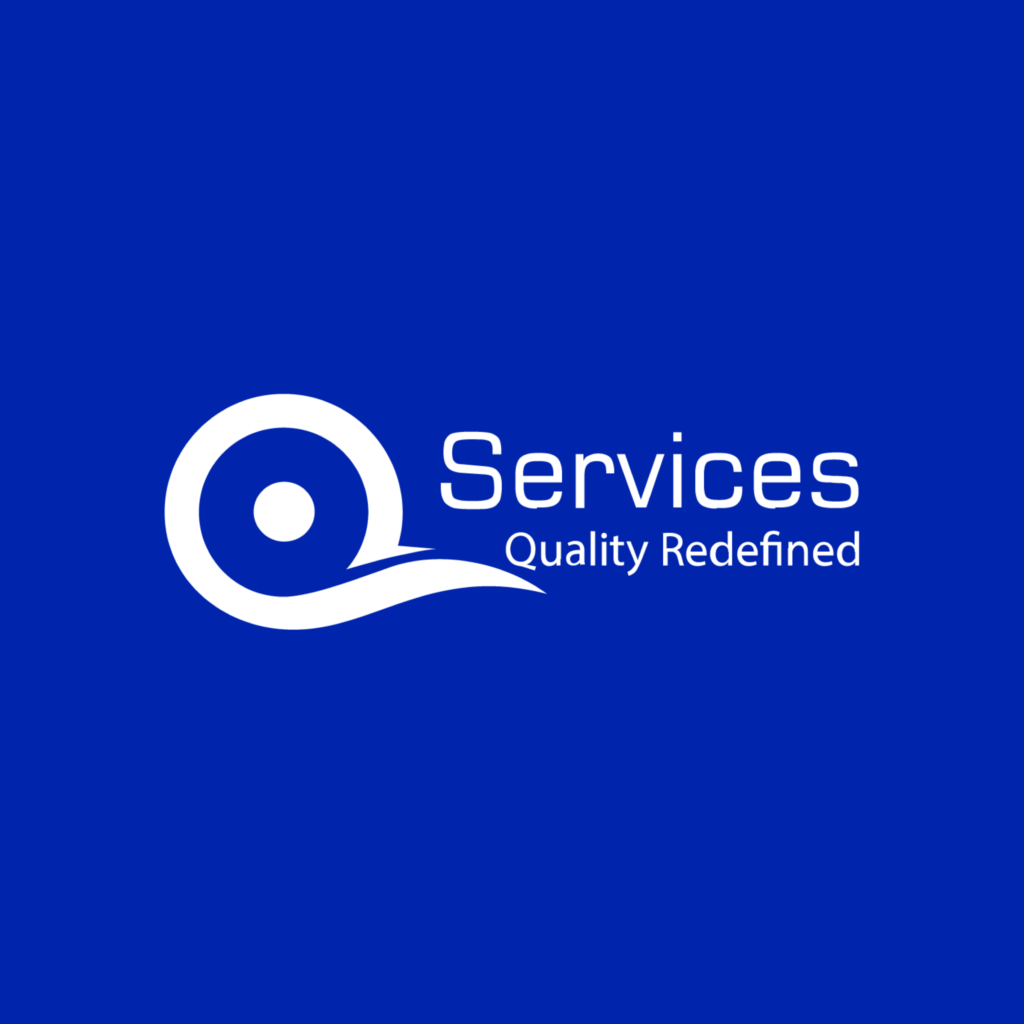
Our Articles are a precise collection of research and work done throughout our projects as well as our expert Foresight for the upcoming Changes in the IT Industry. We are a premier software and mobile application development firm, catering specifically to small and medium-sized businesses (SMBs). As a Microsoft Certified company, we offer a suite of services encompassing Software and Mobile Application Development, Microsoft Azure, Dynamics 365 CRM, and Microsoft PowerAutomate. Our team, comprising 90 skilled professionals, is dedicated to driving digital and app innovation, ensuring our clients receive top-tier, tailor-made solutions that align with their unique business needs.

This is one of the most common questions beginners ask when they start learning Microsoft Power BI. Many users install Power BI Desktop, hear about dashboards, then suddenly come across something called Power BI report builder and feel stuck.
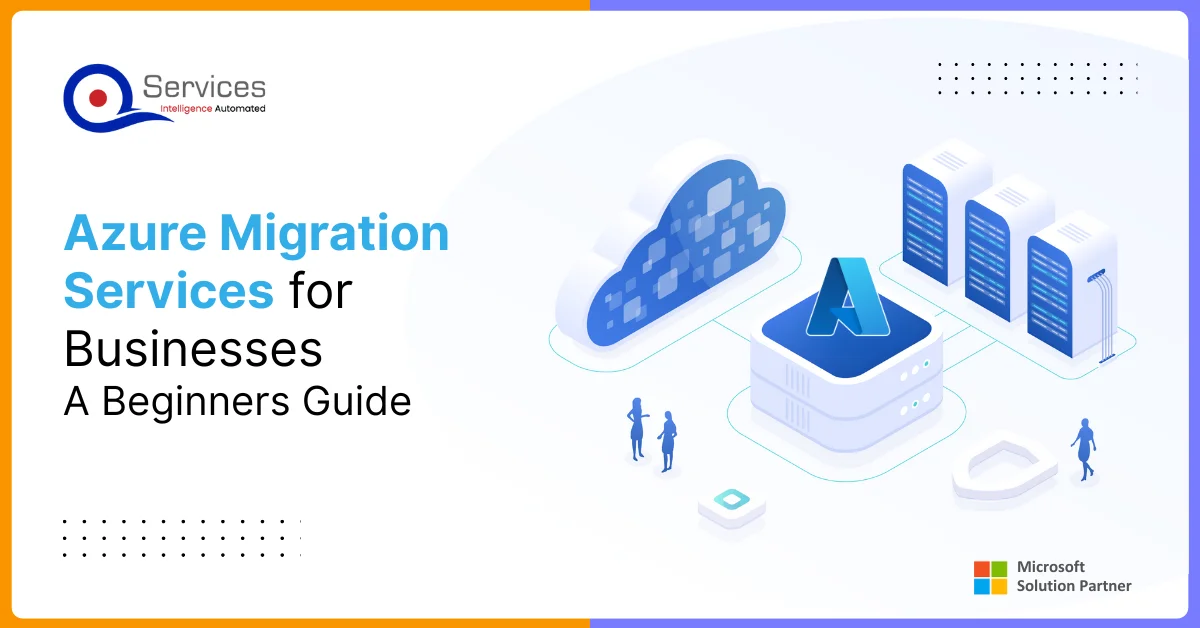
Recent industry data shows that most enterprises now treat Azure Migration Services as a core part of their IT modernization plans rather than a one time project. Businesses are actively prioritizing cloud migration to Azure to improve reliability, security, and long term cost control.
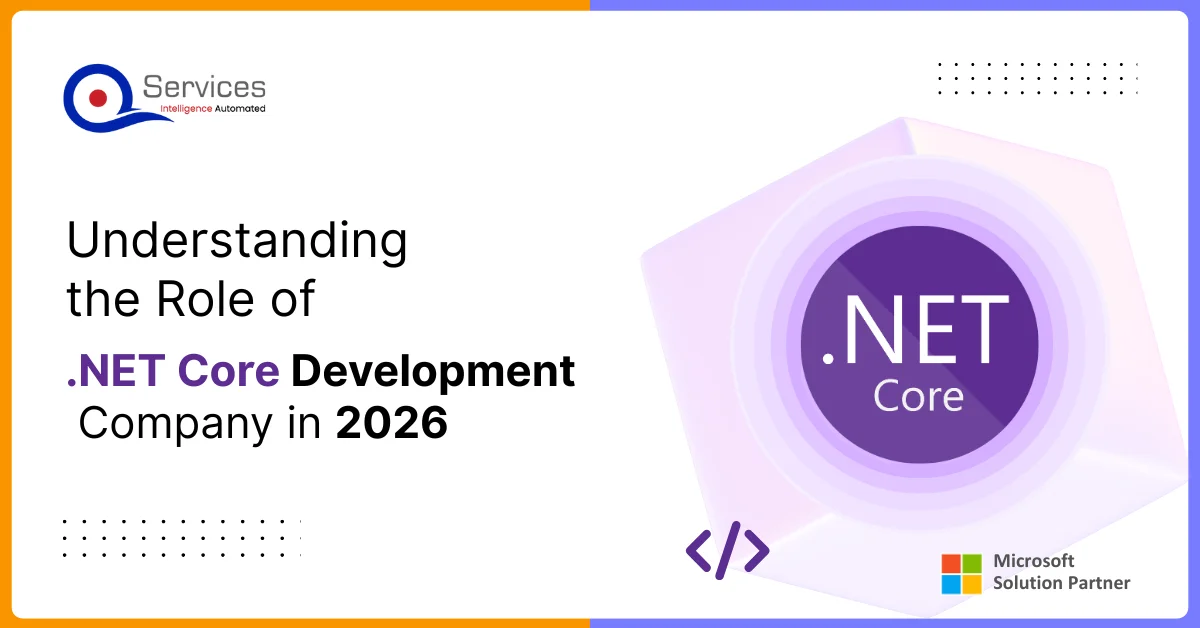
A modern .NET Core development company plays a central role in this change. With rising demand for intelligent and distributed systems, asp.net core development has become a preferred choice for enterprises. The framework supports speed, flexibility, and cross-platform delivery. However, its real value depends on how well it is implemented.
A CRM (Customer Relationship Management) solution is a technology that manages a company’s interactions and relationships with current and potential customers. It helps businesses streamline their sales processes, improve customer service, and increase profitability.
A CRM solution streamlines sales processes by:
Yes, most CRM solutions can integrate with other business systems such as email, calendar, marketing automation, and customer service platforms, creating a cohesive ecosystem for business operations.
Absolutely. CRM solutions come in various sizes and can be tailored to fit the needs of small businesses, helping them to compete with larger companies by optimizing their sales processes.
The benefits of using a CRM solution include:

Founder and CEO

Chief Sales Officer
